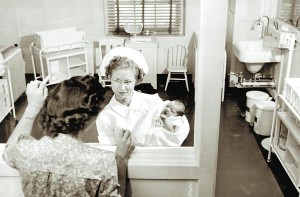Oprah Winfrey has said it. Loosely translated, it is something like this: ‘If you’re a woman born in the United States, you are lucky.’ Visually circumnavigating the globe, I would have to agree with her. But I would add that even if born in the US, depending upon the era and your culture, your luck might still run out.
Judy Dench wonderfully portrays such drama in Philomena–the story of an aging woman reminiscing about her life. And for her something tremendous has been missing for decades. It is the son she gave birth to as a young, unwed mother. The son who was taken away without her consent, at a very early age and adopted out to a ‘complete’ family (usually of means)—married with mother and father firmly in place.
Set in 1950’s Catholic Ireland, the story takes us through the archaic and I would say, misguided practices of the Catholic Church at the time–when unintended pregnancies brought such shame and stain to the new mother’s family of origin, that the girls were sent to religious institutions to live during the pregnancy. Those in religious authority not only thought the girls should be put to some useful work, but that they should clearly suffer for their ‘sins of the flesh.’ Some girls were housed until the birth; others never even made it that far, falling prey to some shoddy, non-professional medical care administered by the same. (While the story was set in Ireland, I have heard of similar stories right here in the US.)
Philomena is a determined lady, not easily misled. And she crosses paths with a recently ‘sacked’ journalist who agrees to tell her story and help her try and locate her son. From Ireland to Washington DC, the leads take the duo cross the globe and back, trying to piece together pieces of a puzzle that were only known to the nuns who ran the adoption process some fifty years earlier. Only when the convent claims to have no records related to her case, the inquisition begins, with the journalist, a self-proclaimed non-believer, dead set on cracking the religious system. All the time, Philomena continues to worship, wear a crucifix and pray—seemingly with a soul untouched by the wrongs done to her by the church. Interesting how the journalist is more upset at God and the church, than the woman who was actually wronged. It’s clearly a lesson in faith and forgiveness–even at a time when forgiveness would be most impossible to find for most people—especially a mother. But her one nagging touch point was wondering if he even knew about her at all—ever wondered about her–asked about her.
The story finds closure as Philomena finds her son to have passed away from Aids, and requested to be buried back at the convent where he first lived. Philomena and her journalist friend pull away from the place that held such horror for her most of her life—-with a new perspective and peace of mind.
A thinking film, worth a see–up for several awards.








Leave A Comment